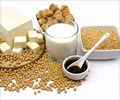The risk of food allergies can be reduced in the child when it is exposed to the food through the mother’s diet.
Highlights
- When a nursing mother is exposed to a food protein, her milk contains complexes of the food protein combined with her antibodies, which are transferred to the offspring throughbreastfeeding.
- Exposing the infant to those proteins in egg, peanuts can reduce the chances of developing food allergy.
- The offspring's developing immune system, trigger the production of protective cells that suppress allergic reactions to the food.
"This elegantly designed and controlled study shows that mothers should feel free to eat a healthy and diverse diet throughout pregnancy and while breastfeeding," said Dr. James R. Baker, Jr., FARE CEO and Chief Medical Officer.
Protective Role Of Breastmilk
In mice, milk from mothers exposed to egg protein gave protection against egg allergy not only to the mothers' own offspring but also to foster newborns whose birth mothers had not received an egg.
Newborns gained an insignificant degree of protection from mothers who were exposed to the egg during pregnancy but did not breastfeed them. The protective effect was strongest when the newborns were born to and nursed by mothers who were exposed to the egg before and during pregnancy and breastfeeding.
"Eating a range of nutritious foods during pregnancy and breastfeeding will not promote food allergies in developing babies, and may protect them from a food allergy."
The food allergy protections described in the study are dependent on specific proteins, some provided by the mother, others by the offspring. By identifying these proteins and proposing a mechanism through which mother and offspring contribute to the development of food tolerance in the newborn mouse, the research opens new opportunities to study how the protections break down in the case of food allergy and how such breakdowns might be prevented.
Preventing food allergy is critical because there are no approved treatments for this serious and potentially life-threatening condition that affects 15 million Americans.
Possible Prevention of Food Allergies
When a nursing mother is exposed to a food protein, her milk contains complexes of the food protein combined with her antibodies, which are transferred to the offspring through breastfeeding.
Aided by a protein in the offspring's gut lining and some immune cells, the food protein-antibody complexes are taken up and introduced to the offspring's developing immune system, triggering the production of protective cells that suppress allergic reactions to the food. These protective cells persist after antibodies from the mother are gone, promoting long-term tolerance to the food.
A similar mechanism may offer protection to human infants. "Humanized mice," in which some proteins of the mouse immune system have been replaced with human immune proteins, were protected from egg allergy by human breastmilk containing complexes of egg white protein and a human antibody.
Oyoshi's research team is now enrolling human mothers in a study that will compare breastmilk from mothers of children at low risk or high risk for food allergy and will examine the contents of breastmilk before and after the nursing mother eats peanuts.
Reference
- James R. Baker et al., Proteins in breastmilk protect offspring against food allergy. Journal of Experimental Medicine (2017).
Source-Medindia
















